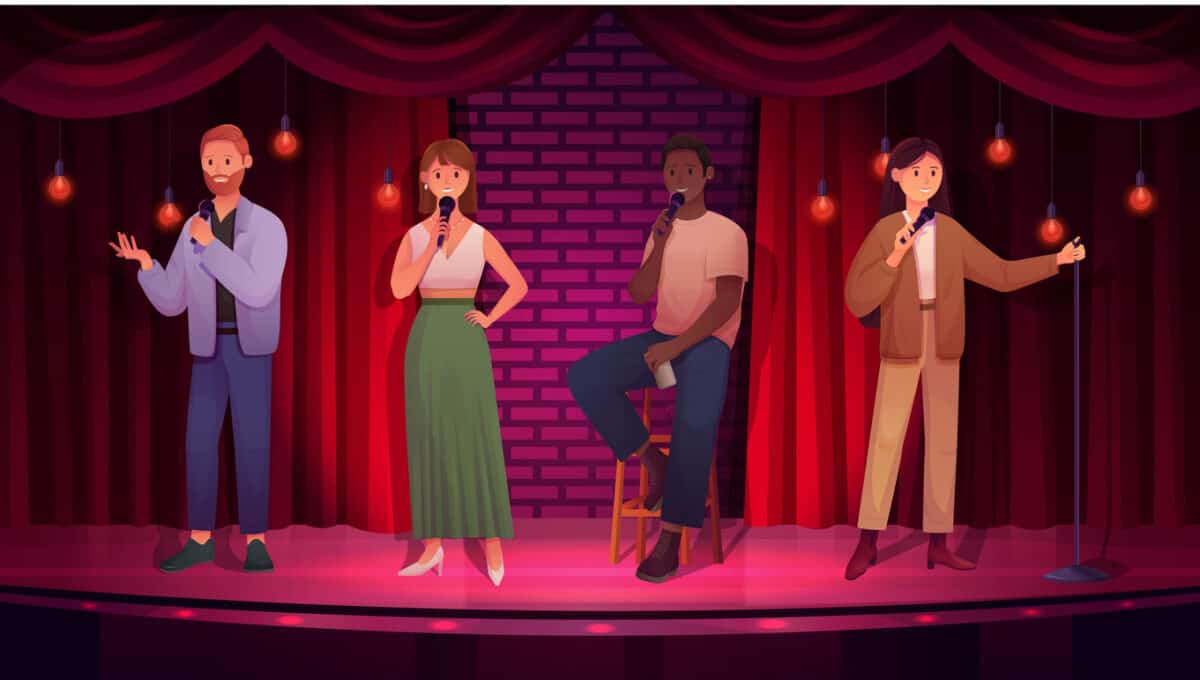Occupational health and safety (OHS) has never had a profile as high as that of the environmental protection movement. OHS has never had a single, focused advocate like Greenpeace to make it visible. OHS activists do not hang banners off Tower Bridge or throw eggs at politicians (yet). One of the characteristics shared by OHS and environmentalists is the lack of comedy. An existential crisis like climate change is hard to laugh about, just as workers are dying, but some would argue that such black comedy could be productive and promotional. A recent show on the BBC World Service, The Climate Question, looked at environmental humour, but there are OHS parallels.
One comedian explains that climate change is not a common comedy subject because it cannot compete with more immediate socioeconomic pressures. Dr Jason Leung said:
“…comedians, we mirror society, we mirror our audience, and the majority of Malaysians, especially nowadays, know we are dealing with rising cost of living, literally bread and butter issues like the prices of bread and butter, increasing inflation and a lot of Malaysians don’t know when the next meal is coming from. So when that happens, it’s very hard to get the normal Malaysian on the street to care about what may happen decades down the line when they are worried about tomorrow. So when that happens, comedians, we kind of gauge, “Okay, climate change is not the hot button topic for the average comedy audience”.”
Occupational health and safety has a similar delayed significance. Asbestosis is a good example of a time delay similar to climate change, and not only for the institutional and commercial pressures applied to ignore the potential harm of the product or process. The harm is not seen as immediate, not in the way of traumatic injuries or deaths. The quote above shows comedians as the transmitters of information, the communicators, and the media through which information and new perspectives are offered.
OHS has neither the media profile nor the transmission capacity except for very visible traumatic injuries and deaths. The asbestos controversy became about the threat to industrial viability, the loss of business, the loss of jobs, and the fight for compensation by workers and suppliers. The media argued about this issue in the business pages until people like Bernie Banton humanised the issues, expressing the immorality of asbestos manufacturers and suppliers, and shamed James Hardie Industries, in particular, into accepting the damage its products caused and offering recompense, which proved to be limited and inadequate. Banton was not a comedian, but there was no more effective communicator at the time.
Another speaker, Professor Aaron Sachs, suggests that climate change activists have been too serious.
“…. one of the reasons that climate change activists have not been using humour traditionally is quite simply that the environmental movement has probably been the least funny social movement ever to exist as far as I can tell. It’s been the practice of environmentalists to be not just grim but also kind of sanctimonious, you know, like we’ve figured something out about how people are behaving and you need to clean up your behaviour and they’re usually talking about everybody but themselves so they come across as holier than now quite frequently.”
and
“So I think probably the most important strategy for environmentalists and climate change activists is to use some dark comedy about themselves.”
A comedy and communication structure was offered on how to do this, using Phyllis Diller as an example – self-denigration, then denigration of everyone else. Diller established a rapport with her audience by displaying her ridiculousness and hypocrisy, then generalising to the rest of the community. OHS professionals and advocates could apply this. Below is an example:
“I must confess right up front that I am an occupational health and safety adviser. Alternate titles include Interfering Prick, Fun Sucker, Fun Vampire, and even Safety Wanker. I know, you are shocked at the extent that OHS advisers are disrespected….”,
OHS comedy on television has been attempted in the past (The Wright Way) but rarely as the major thread of the performance. A work-theme improv comedy night focussed on OHS some years ago, but only because the topic was suggested by me. Wizard Sandwiches produced a safety comedy, centred on an OHS induction, as part of Melbourne’s International Comedy Festival in 2014.
Some OHS areas that could be exploited for comedic effect include explaining
- the Hierarchy of Controls,
- OHS “as far as is reasonably practicable“,
- The employer’s duty of care versus the company’s duty to profit,
- The risk matrix, the risk nomogram and how Consequence is defined,
- Safety Culture Maturity, or rather its Immaturity or Puberty,
- Safety Differently,
- The Marie Kondo approach to Safety Clutter,
- Workstation ergonomics
OHS professionals are loath to admit that OHS contains absurdity, hypocrisy, ridicule, as well as elitism, cynicism, sexism, and more -isms, just like most other professions to varying degrees. Yet that makes OHS equally ripe for comedy.
The Climate Question’s environmental comedy episode concludes with host Jordan Dunbar performing his climate change jokes at an open mic night at a comedy club. The experience reflects the struggle that his episode intended to illustrate, that people are uncomfortable with laughing about climate change. OHS has a similar struggle.


You hit the nail on the head – how do we “humanise” safety when it is a creature of criminal law and risk management and regarded as a cost to business?